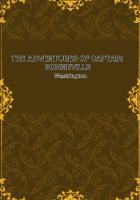One verse--"Thou shalt likewise know, according to Justice, that the nature of this Universe is in all things alike"[3]--is of particular interest, as showing PYTHAGORAS' belief in that principle of analogy--that "What is below is as that which is above, what is above is as that which is below"--which held so dominant a sway over the minds of ancient and mediaeval philosophers, leading them--in spite, I suggest, of its fundamental truth--into so many fantastic errors, as we shall see in future excursions.
Metempsychosis was another of the Pythagorean tenets, a fact which is interesting in view of the modern revival of this doctrine.
PYTHAGORAS, no doubt, derived it from the East, apparently introducing it for the first time to Western thought.
[2] It seems probable, though not certain, that PYTHAGORAS wrote nothing himself, but taught always by the oral method.
[3] Cf. the remarks of HIEROCLES on this verse in his _Commentary_.
Such, in brief, were the outstanding doctrines of the Pythagorean Brotherhood. Their teachings included, as we have seen, what may justly be called scientific discoveries of the first importance, as well as doctrines which, though we may feel compelled--perhaps rightly--to regard them as fantastic now, had an immense influence on the thought of succeeding ages, especially on Greek philosophy as represented by PLATO and the Neo-Platonists, and the more speculative minds--the occult philosophers, shall I say?--of the latter mediaeval period and succeeding centuries.
The Brotherhood, however, was not destined to continue its days in peace.
As I have indicated, it was a philosophical, not a political, association;but naturally PYTHAGORAS philosophy included political doctrines.
At any rate, the Brotherhood acquired a considerable share in the government of Croton, a fact which was greatly resented by the members of the democratic party, who feared the loss of their rights; and, urged thereto, it is said, by a rejected applicant for membership of the Order, the mob made an onslaught on the Brotherhood's place of assembly and burnt it to the ground.
One account has it that PYTHAGORAS himself died in the conflagration, a sacrifice to the mad fury of the mob. According to another account--and we like to believe that this is the true one--he escaped to Tarentum, from which he was banished, to find an asylum in Metapontum, where he lived his last years in peace.
The Pythagorean Order was broken up, but the bonds of brotherhood still existed between its members. "One of them who had fallen upon sickness and poverty was kindly taken in by an innkeeper.
Before dying he traced a few mysterious signs [the pentagram, no doubt] on the door of the inn and said to the host:
`Do not be uneasy, one of my brothers will pay my debts.'
A year afterwards, as a stranger was passing by this inn he saw the signs and said to the host: `I am a Pythagorean;one of my brothers died here; tell me what I owe you on his account.' "[1]
[1] EDOUARD SCHURE: _Op. cit_., p. 174.
In endeavouring to estimate the worth of PYTHAGORAS'
discoveries and teaching, Mr FRANKLAND writes, with reference to his achievements in geometry: "Even after ****** a considerable allowance for his pupils' share, the Master's geometrical work calls for much admiration"; and, ". . . it cannot be far wrong to suppose that it was Pythagoras' wont to insist upon proofs, and so to secure that rigour which gives to mathematics its honourable position amongst the sciences." And of his work in arithmetic, music, and astronomy, the same author writes:
". . . everywhere he appears to have inaugurated genuinely scientific methods, and to have laid the foundations of a high and liberal education"; adding, "For nearly a score of centuries, to the very close of the Middle Ages, the four Pythagorean subjects of study--arithmetic, geometry, astronomy, music--were the staple educational course, and were bound together into a fourfold way of knowledge--the Quadrivium."[1] With these words of due praise, our present excursion may fittingly close.
[1] _Op. cit_., pp. 35, 37, and 38.














